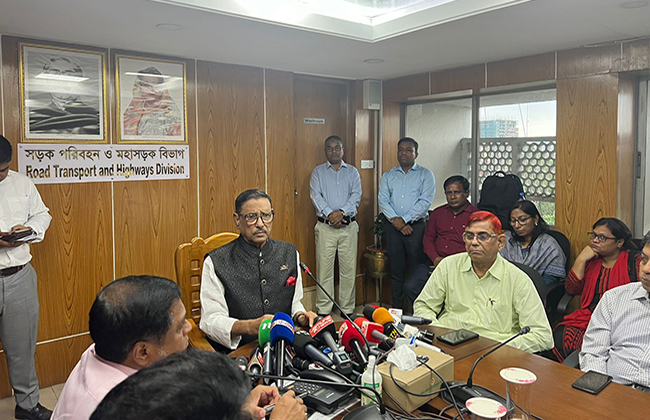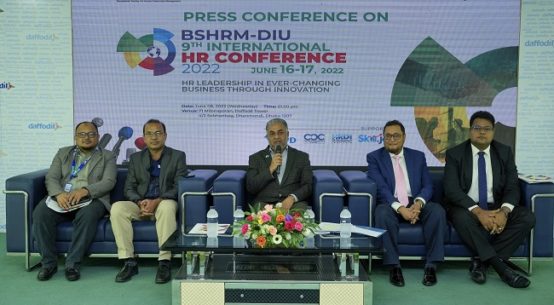
Awami League General Secretary and Road Transport and Bridges Minister Obaidul Quader addressed the recent tensions along the Bangladesh-Myanmar border, clarifying that no direct attacks on Bangladesh have been observed.
He noted that Myanmar is facing internal conflicts involving several ethnic groups and that the recent incidents are likely caused by rebel groups, not the Myanmar government.
Speaking to journalists after a post-Eid celebration meeting with ministry officials and employees today, Quader said, “At the border; shots might hit or sounds of gunfire might be heard. Is this a violation of sovereignty? These incidents are caused by their rebels. Why should we blame the Myanmar government for this? As long as possible, we will continue discussions.”
Addressing BNP’s accusation of the government adopting a subservient foreign policy on the St. Martin’s issue, Quader said, “The opposition uses language to label government decisions as submissive. But how is it submissive? The bullet that reached St. Martin’s was fired by the Arakan Army rebels, not the Myanmar government.”
Quader emphasized Bangladesh’s commitment to resolving conflicts through dialogue rather than war, stating, “The ship mentioned has been removed. When the Rohingyas entered Bangladesh like a tide, there were provocations. It was alleged that our airspace was breached occasionally. Prime Minister Sheikh Hasina, then in Washington, instructed the heads of the armed forces to avoid war under any circumstances. If Myanmar provokes, we will engage in dialogue and find a solution, but we will not engage in war.”
In light of the intense clashes near the Bangladesh-Myanmar border, which have prompted calls for residents to evacuate, Quader reiterated the government’s stance on peaceful resolution. “If BNP Secretary General Mirza Fakhrul Islam Alamgir wants to engage in war, we might fall into the trap of provocation. We are in government, we have responsibilities.”
He further questioned Fakhrul’s contribution during the Liberation War, “I don’t know what Fakhrul did or in which sector he fought during the Liberation War. There is no point in making such claims. Sovereignty remains intact. If sovereignty is truly violated and discussions fail, if they actually attack, will we sit idle? We will have to respond.”


